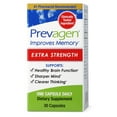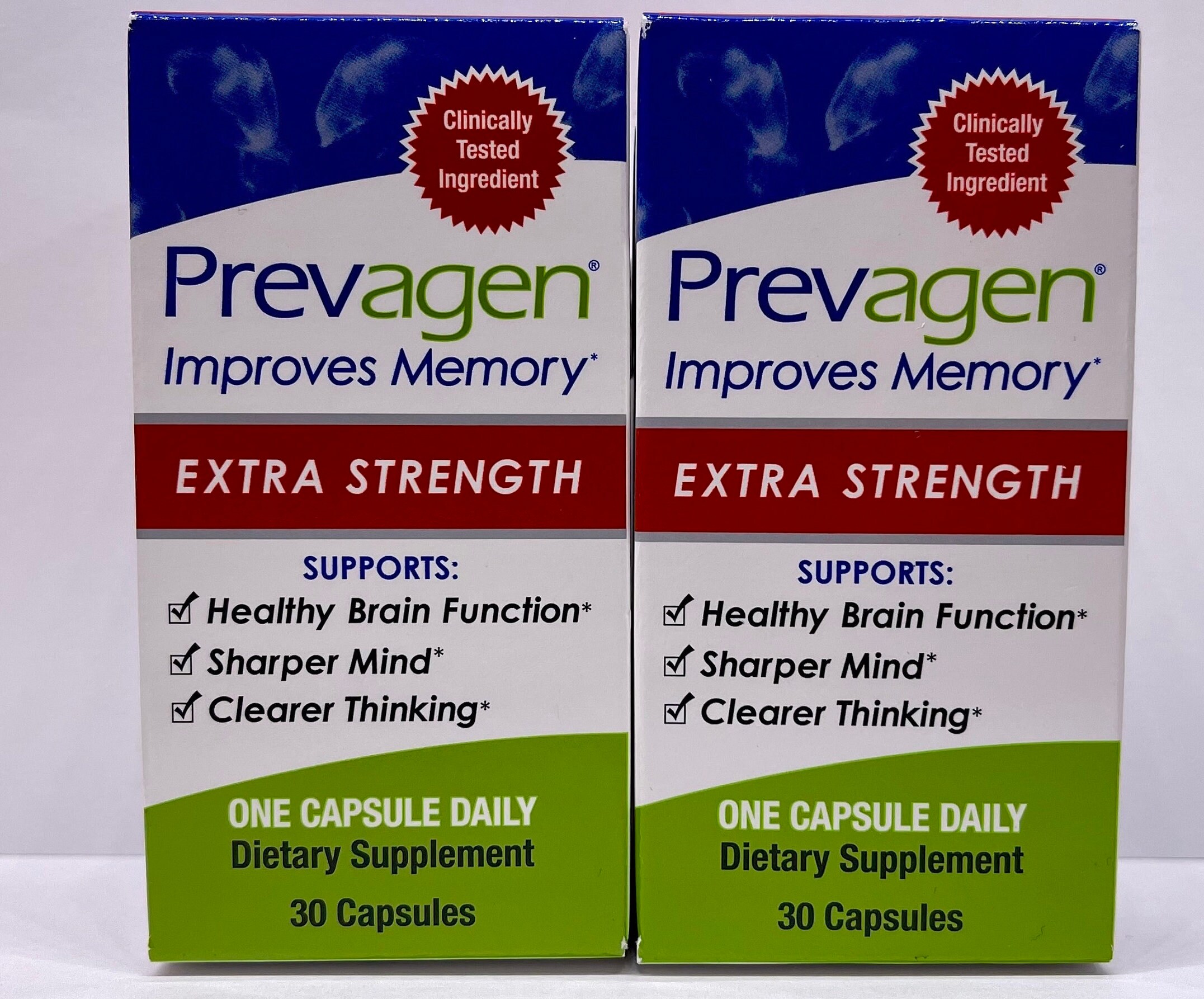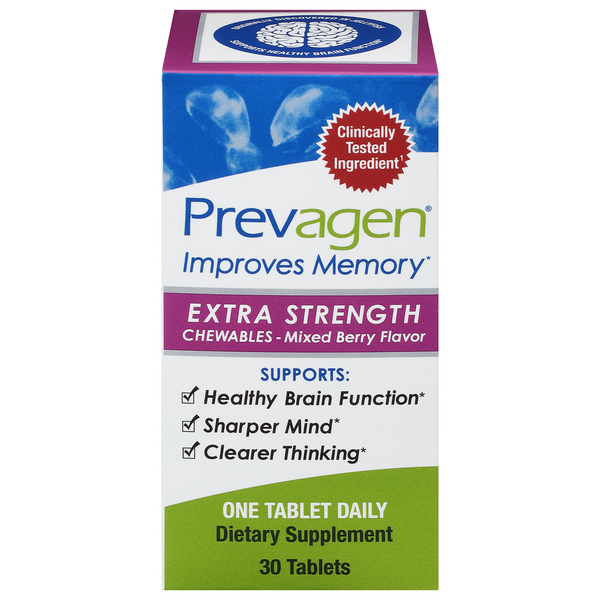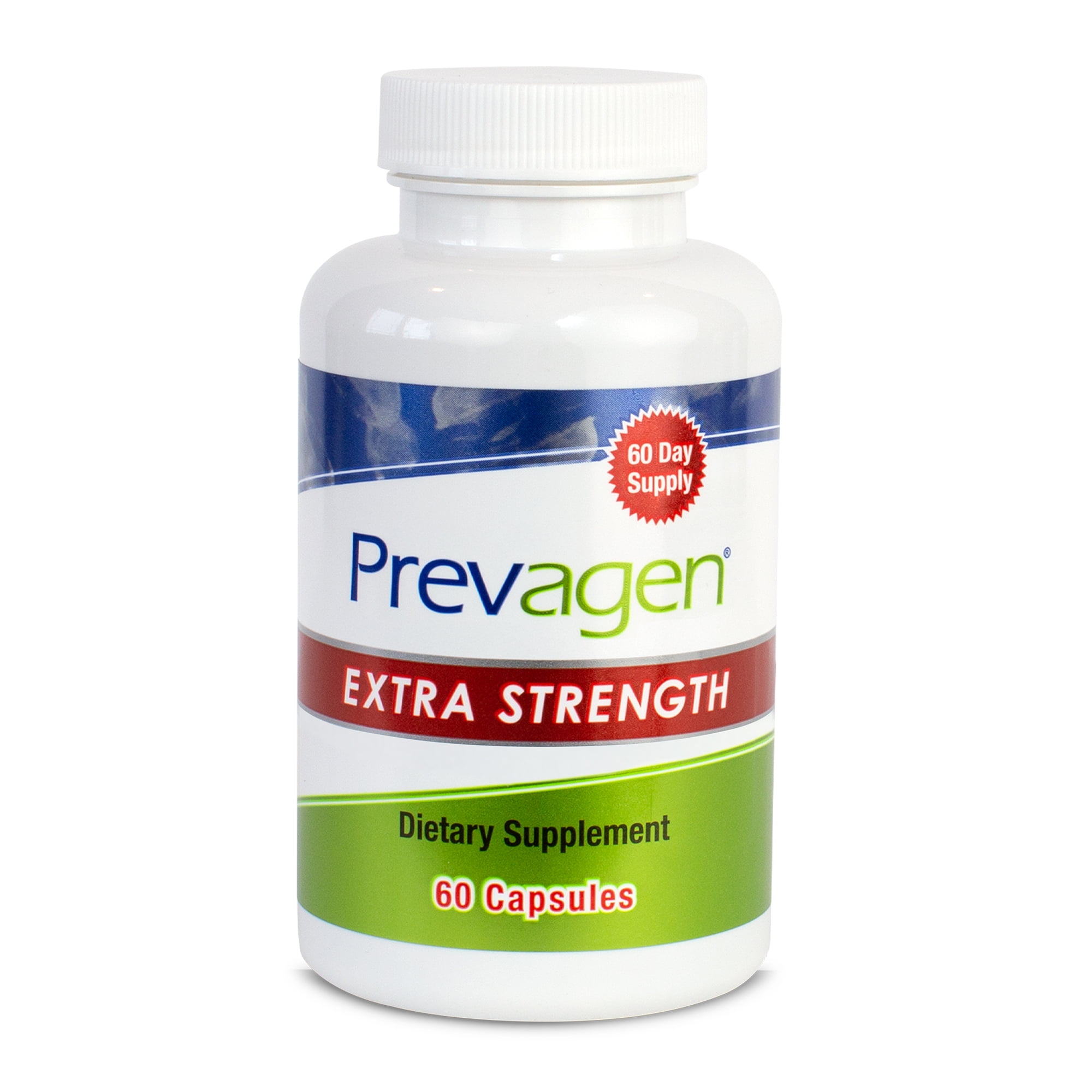Prevagen Improves Memory - Extra Strength

Imagine the gentle warmth of a sun-drenched afternoon, a favorite book in your lap, and the comforting aroma of brewing tea. Suddenly, a familiar face appears at your door – a dear friend you haven't seen in years. But as you search for their name, it dances just beyond your reach, a frustrating whisper on the edge of your memory. This fleeting moment of forgetfulness, increasingly common with age, is a stark reminder of the preciousness of cognitive health.
For those seeking to sharpen their mental acuity and reclaim those elusive memories, there's a growing buzz around Prevagen Extra Strength, a dietary supplement marketed to improve memory. But what is it, and how does it work?
Prevagen, particularly its Extra Strength formulation, is designed to support cognitive function and memory improvement. It has garnered attention as a potential aid for individuals experiencing age-related memory decline.
The Science Behind Apoaequorin
The key ingredient in Prevagen is apoaequorin, a protein originally found in jellyfish. This protein, according to the manufacturers, supports brain health by protecting brain cells. And by regulating calcium levels, which are essential for healthy cell function.
Apoaequorin, as stated by Prevagen's manufacturer, Quincy Bioscience, is supposed to help protect against age-related cognitive decline. It does this by binding to calcium ions. And regulating intracellular calcium concentrations in neurons. This process is vital for neuronal communication and survival.
However, it’s important to note that the mechanism of action of apoaequorin is still under investigation. And independent research on its efficacy and absorption is ongoing.
Clinical Studies and Findings
Quincy Bioscience has conducted several clinical studies on Prevagen. The most prominent is the Madison Memory Study.
The Madison Memory Study, a randomized, double-blind, placebo-controlled trial, involved over 200 participants with self-reported memory concerns. The results, as reported by Quincy Bioscience, indicated that Prevagen showed statistically significant improvement in certain subgroups. Notably, in those with mild cognitive impairment, when compared to the placebo group.
However, these findings have been met with scrutiny. Some experts highlight limitations in the study design and question the generalizability of the results.
A significant point of contention revolves around the bioavailability of apoaequorin. Critics argue that large proteins like apoaequorin are unlikely to cross the blood-brain barrier intact. This is a protective mechanism that prevents many substances from entering the brain.
Quincy Bioscience maintains that apoaequorin does not need to cross the blood-brain barrier to exert its effects. They suggest it may work through indirect mechanisms, such as influencing gut microbiota or immune responses. More research is needed to substantiate these claims.
Regulatory Landscape and Legal Challenges
Prevagen is marketed as a dietary supplement, which means it is not subject to the same rigorous pre-market approval process as pharmaceutical drugs. The FDA does not evaluate dietary supplements for safety and efficacy before they are sold to the public.
In 2017, the Federal Trade Commission (FTC) and the New York Attorney General filed a lawsuit against Quincy Bioscience. Alleging that the company made false and unsubstantiated claims about Prevagen's ability to improve memory.
The case went to trial, and in 2020, the judge declared a mistrial, finding that the evidence was insufficient to prove that Quincy Bioscience intentionally misled consumers. However, the FTC continues to express concerns about the marketing of Prevagen. Further legal challenges or regulatory actions remain a possibility.
Understanding Memory Loss and Cognitive Health
It’s essential to distinguish between normal age-related memory changes and more serious cognitive decline. As we age, it's normal to experience occasional forgetfulness, such as misplacing keys or forgetting names momentarily.
However, significant memory loss that interferes with daily life, difficulty with problem-solving, and changes in personality can be signs of a more serious underlying condition. Consulting a healthcare professional is crucial for proper diagnosis and management.
Maintaining a healthy lifestyle is paramount for cognitive health. This includes a balanced diet, regular exercise, sufficient sleep, and engaging in mentally stimulating activities.
Activities like reading, puzzles, and social interaction can help keep the brain active and promote cognitive resilience. Managing stress and maintaining strong social connections are equally important.
Consumer Considerations and Expert Opinions
Before considering Prevagen or any other memory supplement, it’s essential to consult with a healthcare provider. A doctor can assess individual needs, review potential interactions with medications, and provide personalized recommendations.
Some experts express cautious optimism about the potential of apoaequorin while emphasizing the need for more robust and independent research. Others remain skeptical, citing concerns about bioavailability and the limitations of existing studies.
Consumers should be wary of exaggerated claims and promises of dramatic memory improvement. It’s crucial to approach dietary supplements with a healthy dose of skepticism and rely on credible sources of information.
Transparency and scientific rigor are paramount in the evaluation of any health-related product. Seeking unbiased information from reputable sources is vital for making informed decisions.
Looking Ahead: The Future of Cognitive Enhancement
Research into cognitive enhancement is a rapidly evolving field. Scientists are exploring a variety of approaches to improve memory and brain function. These include pharmacological interventions, lifestyle modifications, and novel technologies.
The quest for effective strategies to combat age-related cognitive decline remains a significant focus of scientific inquiry. As our understanding of the brain deepens, new and innovative solutions are likely to emerge.
While Prevagen and apoaequorin continue to generate interest and debate, they represent just one facet of the broader landscape of cognitive health research. The future holds the promise of more targeted and effective interventions to support brain health and enhance memory throughout life.
In the quiet moments of reflection, as we consider the tapestry of our lives and the cherished memories we hold dear, the pursuit of cognitive well-being takes on a profound significance. It reminds us of the importance of nurturing our minds and protecting the precious gift of memory, ensuring that the stories we carry within us remain vibrant and accessible for years to come. The journey to preserving cognitive health is a personal one. It requires informed decisions and a proactive approach to well-being.


















